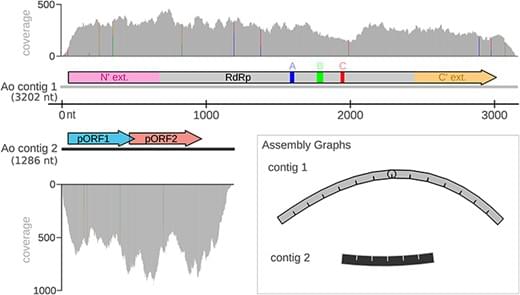An international team led by researchers at the University of Toronto has found a new RNA virus that they believe is hitching a ride with a common human parasite.
The virus, called Apocryptovirus odysseus, along with 18 others that are closely related to it, was discovered through a computational screen of human neuron data — an effort aimed at elucidating the connection between RNA viruses and neuroinflammatory disease. The virus is associated with severe inflammation in humans infected with the parasite Toxoplasma gondii, leading the team to hypothesize that it exacerbates toxoplasmosis disease.
“We discovered A. odysseus in human neurons using the open-science Serratus platform to search through more than 150,000 RNA viruses” said Purav Gupta, first author on the study, recent high school graduate and current undergraduate student at U of T’s Donnelly Centre for Cellular and Biomolecular Research. “Serratus identifies RNA viruses from public data by flagging an enzyme called RNA-dependent RNA polymerase, which facilitates replication of viral RNA. This enzyme allows the virus to reproduce itself and for the infection to spread.”
